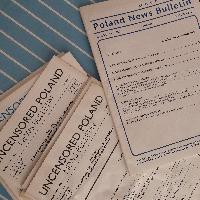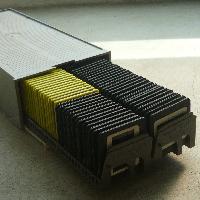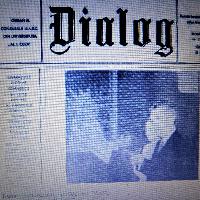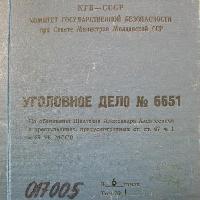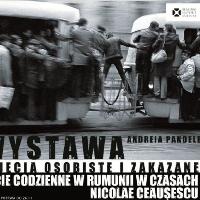The Alenka Puhar Collection on the Human Rights Movement in Slovenia/Yugoslavia was mostly created in the 1980s and testifies to the struggle of Slovenian and Yugoslav activists to promote and protect human rights in Yugoslavia. Alenka Puhar was one of the key people in the 1983 campaign to abolish the death penalty in Yugoslavia, and in the organization of mass protests in Ljubljana in 1988 and in the Slovenian spring in the late 1980s. The collection documents the struggle and connections between Slovenian activists and other Yugoslav activists and dissidents who had the common goal of promoting and protecting human rights in Yugoslavia and ultimately the collapse of the communist regime.
-
Vieta:
-
Temos:
-
Įkūrimo data:
-
Charakteringi eksponatai:
Through colour photographs and slides, the Alexandru Barnea private collection documents the demolitions imposed by the communist regime in the centre of Bucharest following the devastating earthquake of 1977, which served as a pretext for the destruction or mutilation of many historic monuments. The policy of demolishing the architectural and urbanistic heritage has been considered one of the most aberrant and arbitrary measures in the recent history of Romania.
-
Vieta:
-
București Drumul Taberei 18, Romania 061344
-
Temos:
-
Įkūrimo data:
-
Charakteringi eksponatai:
The Alexandru Călinescu private collection epitomises the trajectory of an intellectual in an important university city who began to practise a camouflaged contestation, published in local student magazines, with a limited readership, and ended up in unequivocal public opposition, disseminated transnationally through foreign radio stations. The collection marks some of the key episodes in the movement of resistance to and contestation of the communist regime as it manifested itself in Iaşi, the historical capital of the region of Moldavia and the city with the oldest university in the Old Kingdom of Romania. At the same time, the collection and the personal story of Alexandru Călinescu illustrate a lesson in dignity in very difficult times, when there were few who had the courage to speak openly against the Ceaușescu regime.
-
Vieta:
-
Iași Strada Păcurari 8, Romania
-
Temos:
-
Įkūrimo data:
-
Charakteringi eksponatai:
This collection comprises various documents (including trial records) relating to the activities of Alexandru Șoltoianu, a well-known oppositional figure in the Moldavian Soviet Socialist Republic (MSSR) in the late 1960s and 1970s. Closely linked to the Usatiuc–Ghimpu–Graur group, Șoltoianu pursued a parallel project of creating a mass nationally oriented anti-Soviet political party known as National Rebirth of Moldavia (Renașterea Națională a Moldovei), to be based upon a broad network of student associations. Șoltoianu’s case files are currently held in the National Archive of the Republic of Moldova (ANRM). These materials were transferred to the ANRM from the Archive of the Intelligence and Security Service of the Republic of Moldova (formerly the KGB Archive).
-
Vieta:
-
Chișinău Bulevardul Ștefan cel Mare și Sfînt 166, Moldova 2004
-
Temos:
-
Charakteringi eksponatai:
The Andrei Pandele private collection is the most significant testimony in pictures, mainly black and white, to the demolition of historic monuments and districts in the Romanian capital in the period of late communism. Together with photographs that are essential for the preservation of the memory of a mutilated city and a vanished cultural heritage, the collection also includes a series of images capturing aspects of the degradation everyday life throughout the profound crisis of the 1980s. These suggest both the absurdity of the policies of the Ceaușescu regime and the grotesque mutations in the everyday routine of ordinary people to which these policies gave rise.
-
Vieta:
-
București Strada Dumbrava Roșie 12, Romania 030167
-
Temos:
-
Įkūrimo data:
-
Charakteringi eksponatai:

